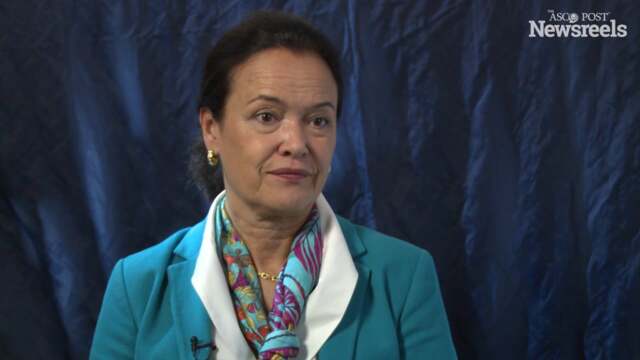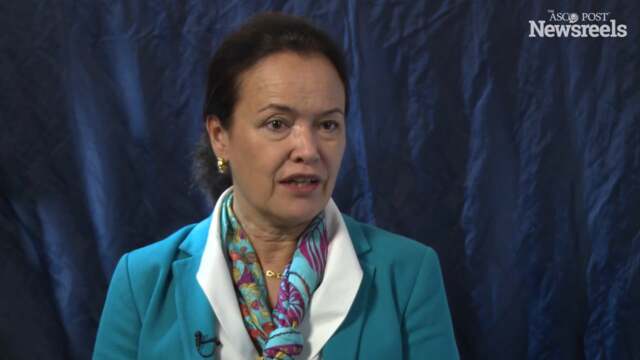Clifford A. Hudis, MD, on Obesity, Inflammation, and Cancer
2015 European Cancer Congress
Clifford A. Hudis, MD, of Memorial Sloan Kettering Cancer Center, summarizes his educational lecture on obesity, inflammation, and cancer—an important topic in oncology.
Tony Mok, MD, and Alice Shaw, MD, PhD
Tony Mok, MD, of The Chinese University of Hong Kong, and Alice Shaw, MD, PhD, of Massachusetts General Hospital, discuss the current status and future outlook of ALK inhibition, and an assessment of brigatinib CNS activity in patients with ALK-positive non-small cell lung cancer and intracranial metastases (Abstract 3061).
Martine J. Piccart-Gebhart, MD, PhD
Martine J. Piccart-Gebhart, MD, PhD, of the Jules Bordet Institute, and ECCO President, discusses ways in which imaging can form the solution to individualized cancer treatment.
Mary K. Gospodarowicz, MD
Mary K. Gospodarowicz, MD, of Princess Margaret Hospital, discusses the work of the Global Task Force on Radiotherapy for Cancer Control and its efforts to improve access to vital radiation treatment worldwide, especially in low- and middle-income countries.
Martine J. Piccart-Gebhart, MD, PhD
Martine J. Piccart-Gebhart, MD, PhD, of the Jules Bordet Institute, discusses the ESMO initiative to make cancer drugs affordable.
Jonathan E. Rosenberg, MD
Jonathan E. Rosenberg, MD, of Memorial Sloan Kettering Cancer Center, discusses this pivotal study of an investigational immunotherapy that has shown increased and durable responses, with a relatively benign toxicity profile (Abstract 21LBA).





